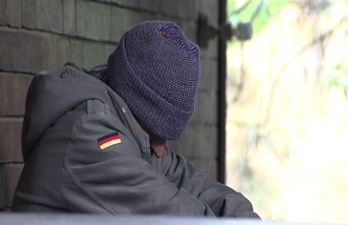Challenges in accessing grants and subsidies make it difficult for those affected to live in society. The health department, aware of the worsening state of mental health in our country, admits there’s a great need to reach people in poor communities who need help the most. But in a world where those who have a mental illness are ridiculed and judged without a proper understanding or compassionate heart, people who suffer from this face challenges from every corner.
We meet up with Sifiso Mkhasibe, 29, who is being treated at a private facility, the Talisman Foundation, Johannesburg, for bipolar mood disorder. He is thriving in an atmosphere where people not only understand but also care. We follow him through a typical day where he attends group therapy and skills training.
On the other side of that spectrum is Zozo Sithole, whose mental illness has pushed him to wander off from home one day, and he became destitute for more than a year. After his family managed to track him down, homeless and desperate, he was admitted to a public hospital. He now receives care at Baragwanath’s psychiatric unit.
People still stigmatise the mentally ill
We also meet up with Charlene Sunkel whose ill treatment in psychiatric hospitals encouraged her to become an advocate for mental health. She has dedicated her life to enlightening others through the power of art and has produced three plays and won many awards for her work in the field of mental health. But life was not always like this for Charlene – it’s been a long and difficult journey since she was diagnosed with schizophrenia in 1997.
Mental illness is treatable and recovery is possible with the right medication, therapy and support. But as our case studies attest, society needs to embrace the realities of mental illness and realise that there is no need to fear these people and shut them out. They are people just like you.
– By Produced and written by Tanja Bencun for Special Assignment


